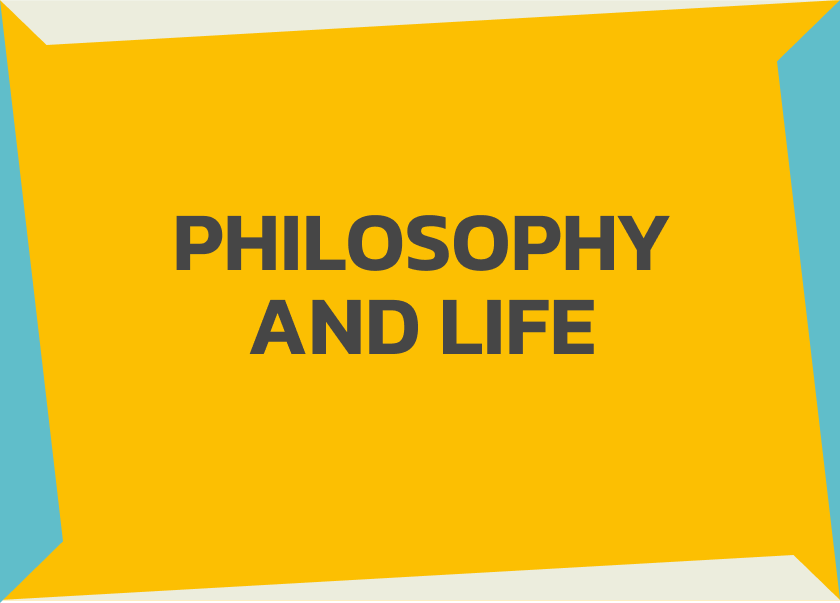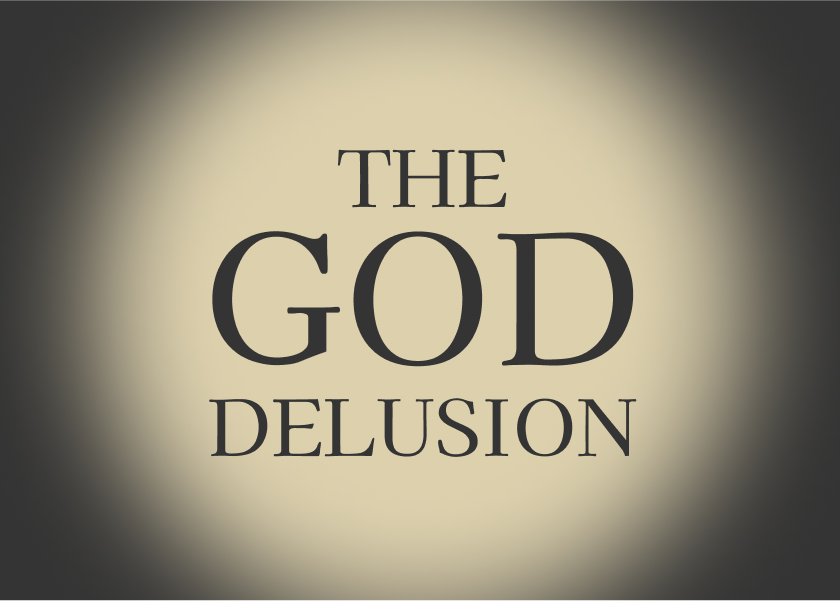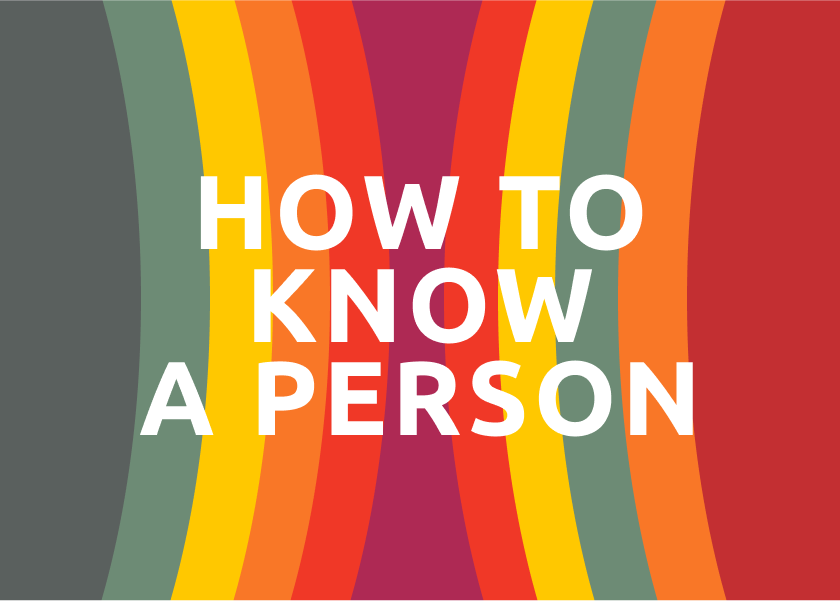Philosophy and Life by AC Grayling - Summary
Life's biggest question: How should you live? Not sure? Explore timeless wisdom, from Stoics to Epicureans, and craft your own meaningful path. Think for yourself, choose your values, and live authentically.

The following is a summary and review of the book Philosophy and Life by AC Grayling.
Exploring the Great Questions of How to Live
Tired of drifting through life, simply accepting conventional wisdom? Do you ever pause and ponder: "How should I truly live?" This fundamental question lies at the heart of A. C. Grayling's insightful book, Philosophy and Life: Exploring the Great Questions of How to Live. Grayling, a distinguished philosopher, guides readers through the rich history of philosophical thought, not as a dry academic exercise, but as a practical toolkit for crafting a meaningful and authentic existence. This summary offers a comprehensive overview of the book's key ideas, saving you time while providing actionable insights to inspire deeper engagement with this thought-provoking work.
Table of Contents
- About the Author
- Who Should Read This Book?
- Key Insights and Themes
- Detailed Summary
- Review
- Actionable Takeaways
- FAQs
- Conclusion
About the Author
Professor A. C. Grayling is the Principal of the New College of the Humanities at Northeastern University, London, and a Supernumerary Fellow of St Anne’s College, Oxford. He is a prolific writer and editor, having authored over thirty books on philosophy, history, science, and current affairs. His experience includes writing columns for The Guardian and The Times, and chairing the 2014 Man Booker Prize. Grayling's extensive engagement with philosophical ideas and his ability to communicate them accessibly make him a credible and significant voice in contemporary thought.
Who Should Read This Book?
This book is for anyone who has ever questioned the values they live by and sought a more considered approach to life. It will particularly appeal to:
- Individuals feeling unfulfilled or as though they are living on autopilot, simply following societal norms.
- Those curious about the history of ethical thought and the wisdom of ancient philosophers like the Stoics and Epicureans.
- Readers seeking guidance on navigating complex issues such as happiness, death, love, duty, and meaning.
- Anyone who feels that academic philosophy has become too technical and desires a more practical engagement with life's big questions.
- Those who are wary of simplistic self-help books and prefer a deeper, more nuanced exploration of how to live well.
Whether you are a seasoned philosophy enthusiast or a complete novice, Grayling's accessible writing style and the book's structure make it a valuable resource for embarking on your own philosophical journey.
Key Insights and Themes
Here are some of the key takeaways and main ideas explored in Philosophy and Life:
- The Socratic Question: The fundamental question of "How should I live my life?" is central to the book, urging individuals to actively choose their values rather than passively adopting conventional views.
- Lebensphilosophie (Philosophy of Life): The book champions the importance of "philosophy of life," an area often neglected in academic philosophy, which focuses on the practical aspects of living a human life in a complicated world.
- Individualism and Choice: Each person must answer Socrates' question for themselves; there is no one-size-fits-all answer offered by ideologies like religions. Genuine choice, based on rational examination, is paramount.
- Understanding Human Nature: Considering "who are 'we'?" and the complexities of human nature, including intersectionality and the constructed nature of the autobiographical self, is crucial for answering the Socratic Question. The goal is to find or make one's "truest self".
- Learning from the Schools of Life: The ethical teachings of ancient philosophical schools (Cynic, Peripatetic, Stoic, Epicurean, etc.) offer valuable insights and principles for living. The book encourages "cherry-picking" the best from each rather than adhering rigidly to one doctrine.
- Avoiding Wrong Turnings: Blind adherence to religion or other ideologies without critical examination can lead to "wrong turnings" in life. Comforting illusions may offer happiness, but truth and self-knowledge are crucial for maturity.
- The Pursuit of Happiness and a Life Worth Living: The book explores different conceptions of a "good life" – pleasure, moral uprightness, and a sense of worth and meaning. While ataraxia (tranquillity) is valuable, the question remains whether it is sufficient for a truly meaningful life.
- The Importance of Relationships: Friendship is presented as one of the highest and most valuable features of a life worth living. The Epicurean view of friendship, emphasizing mutuality and complementary needs, is favoured over the more restrictive Aristotelian view.
- Philosophy as a Practice: Living philosophically requires more than just intellectual understanding; it demands the development of attitudes and responses that accord with chosen ethical principles. It is an "art of living" that requires application and "care of the self".
- Critical Engagement with Philosophical Ideas: Readers are encouraged to engage critically with the ideas of great philosophers, appropriating what is compelling rather than being blindly mesmerized by any single figure.
- The Role of Education and Reflection: Self-education and reflection are crucial for personal growth and for resisting the unthinking acceptance of societal norms that can limit human potential. Understanding and applying knowledge (praxis) are both necessary.
- The Potential for a Meaningful Life: While most people may aim for "getting by satisfactorily," the book suggests that a more creative and engaged life, filled with new experiences and an expansion of the self, is more than worthwhile; it is meaningful.
Detailed Summary
The book is structured in three parts, each addressing different aspects of the central question, "How should I live my life?".
Part I: Clarifying the Question and Laying the Groundwork
- The Question: Grayling begins by highlighting the universality and enduring importance of Socrates' question. He notes that most people answer it unthinkingly by adopting conventional views. The book aims to encourage a more conscious and reasoned approach to this fundamental inquiry. It establishes the premise that individuals must think for themselves and that the answer is personal to each individual.
- ‘We’ and Human Nature: This chapter delves into the complexities of defining "we" in a diverse world, considering factors like race, gender, class, and other aspects of identity. It also explores the concept of human nature, questioning its uniformity. The chapter emphasises the importance of self-knowledge (gnothi seauton), noting the deceptive nature of our autobiographical selves and the need to seek or create a deeper, ultimate self. Ultimately, it concludes that individuals are free to make choices about how to live and what values to live by.
- The Schools of Life: This section surveys the main schools of ethical thought since Socrates, including Cynics, Peripatetics, Stoics, and Epicureans. Grayling touches upon the core tenets of each, such as the Cynic emphasis on virtue manifested in actions, the Stoic focus on reason and self-mastery, and the Epicurean pursuit of pleasure and tranquillity (ataraxia). The aim is not to advocate for one school but to provide a background for later discussions and encourage readers to "cherry-pick" useful ideas.
- Avoiding a Wrong Turning: This chapter cautions against blindly accepting religious or ideological answers to the Socratic Question. Grayling argues that adherence to religion often requires accepting problematic claims and can contribute to harm in the world. He raises the question of whether happiness based on illusions is acceptable, ultimately siding with thinkers who value truth and self-knowledge.
Part II: Exploring Key Concepts
- Happiness, The Pursuit of –: This chapter examines different understandings of happiness and the factors that contribute to a contented life. It touches on the Stoic and Epicurean pursuit of ataraxia and contrasts it with insights from modern happiness studies, which highlight the importance of good relationships, contribution, healthy eating, and exercise. The "happy pig" point is raised, questioning whether mere tranquillity is sufficient for a life worth living.
- The Great Concepts: This section likely delves into various fundamental concepts relevant to living a good life, such as virtue, wisdom, and justice. (The provided excerpts offer snippets about virtue as the "mean" according to Aristotle, and wisdom being conflated with intelligence and learning).
- Death: This chapter confronts the inevitability of death and its implications for how we live. (The excerpts mention Marcus Aurelius' thoughts on death).
- Love: Grayling explores the multifaceted nature of love, distinguishing between romantic love and friendship. He discusses how the concept of romantic love has evolved and highlights Jane Austen's view that love depends on character and grows from friendship. Friendship is presented as a crucial element of a worthwhile life, with the Epicurean view of friendship as mutually beneficial being favoured.
- Luck and Evil: This chapter grapples with the role of chance and the problem of evil in human experience. It considers the idea of "moral luck" and examines the horrors of Auschwitz through Primo Levi's account, highlighting the struggle for survival and the erosion of humanity in extreme circumstances. It also discusses Hannah Arendt's analysis of the "banality of evil" in the context of Eichmann's bureaucratic role.
- Duties: This section examines the concept of duty and our obligations to ourselves and others. It critiques Bradley's view that an individual is nothing apart from society and must fulfil their station's duties. Sidgwick's more nuanced perspective, acknowledging the influence of social norms while striving for a universal ideal of a good life, is also discussed.
- Living Among Others: This chapter likely expands on our social responsibilities and the importance of considering others in our choices. (The excerpts mention Marcus Aurelius' view on contributing to society and the need for an inclusive sense of the world). The idea of "care of the self" is linked to our duties as social beings, requiring empathy, understanding different perspectives, and "slow thinking". Plutarch's concept of the "good guest" at the "dinner of life" is introduced, emphasizing informed conversation, attentive listening, and mutual education.
- ‘The Meaning of Life’ and ‘A Life Worth Living’: This final chapter of Part II distinguishes between a "life worth living" and a "meaningful life". It notes that the ancient philosophers largely focused on achieving a self-possessed and tranquil existence. The concept of purpose is associated with a meaningful life, often seen in biographies of those who have made a significant mark. Grayling proposes the "Universal Argument" to suggest that "getting by satisfactorily" can be enough for humanity's existence to be worthwhile. He also discusses Nussbaum's critique of the Hellenistic schools for potentially sacrificing emotional depth in their pursuit of ataraxia.
Part III: Philosophy as a Way of Life
- Philosophy as a Way of Life: This section, drawing on Pierre Hadot's work, emphasises that philosophy in antiquity was not just a discourse but a way of life demanding application and "spiritual exercises" to shape one's character. The ethical outlook is not an add-on but integral to the person. The importance of writing down and rereading one's thoughts (hypomnemata) is highlighted, as exemplified by Epictetus and Marcus Aurelius.
- A Life and Its Philosophy: In this penultimate chapter, Grayling becomes more personal, sketching his own philosophical choices and reasons for them. He highlights his appreciation for Aristotle's emphasis on reason and inquiry, the Epicurean focus on naturalism, friendship, and intellectual pleasures, and the Stoic principles for confronting adversity and cultivating self-mastery. He describes his intellectual journey and the influences that have shaped his own "collage" of philosophical tenets. He also touches upon the interconnectedness of the ethical and political, advocating for participation in society and the importance of human rights and civil liberties.
- Envoi: Preparation: The concluding chapter reflects on the book's message, highlighting how progress and significant achievements are often the work of a minority who question prevailing norms. It extends an invitation to everyone to become a "candle-carrier," thinking for themselves and contributing to a more considered way of life. It reiterates that a conscious and chosen philosophy of life will be individual to each person, potentially leading to agreement with others through independent rational reflection. It concludes by contrasting a minimalist "life worth living" with a more creative and engaged "meaningful life".
Review
Philosophy and Lifeis a commendably accessible and engaging exploration of profound questions. Grayling expertly weaves together historical accounts of philosophical schools with contemporary relevance, making complex ideas understandable for a broad readership. One of the book's major strengths is its emphasis on the practical application of philosophy, moving beyond abstract theories to consider how these ideas can inform our daily lives and choices. The survey of ancient ethical thought is particularly valuable, providing a rich resource of perspectives on how to navigate the challenges of human existence. Grayling's personal reflections in Part III add a compelling dimension, illustrating how one might integrate philosophical principles into a coherent worldview.
However, the sheer breadth of topics covered could be seen as a potential weakness. While the book provides a wide-ranging overview, some readers might desire a more in-depth analysis of specific philosophical concepts or schools of thought. Additionally, while Grayling advocates for individual choice and critical thinking, his own perspectives and preferences are clearly present, which, while adding a personal touch, might not resonate with all readers. Nevertheless, the book successfully achieves its aim of inspiring readers to think more deeply about how they live and to actively engage in the ongoing quest for a meaningful life.
Actionable Takeaways
Here’s how to apply these lessons in real life:
- Ask Yourself the Socratic Question: Regularly reflect on "How should I live my life? What values shall I live by? What sort of person should I be? What shall I aim for?". Don't just accept conventional answers; think critically for yourself.
- Explore the Ethical Schools: Familiarise yourself with the core ideas of different philosophical schools like Stoicism, Epicureanism, and Cynicism. Identify principles that resonate with you and consider how you might integrate them into your own life.
- Cultivate Self-Awareness: Engage in introspection to understand your own values, beliefs, and motivations. Be aware of the stories you tell yourself and strive to uncover your "truest self".
- Prioritise Meaningful Relationships: Recognise the importance of friendship and strive to build and nurture deep connections based on mutual respect and understanding.
- Embrace Reason and Truth: Be wary of unexamined beliefs and comforting illusions. Value knowledge and self-knowledge as crucial for personal growth and maturity.
- Develop Self-Mastery: Learn to manage your emotions and responses to external events, as advocated by the Stoics. Focus on what you can control and accept what you cannot.
- Seek a Life of Purpose and Engagement: Consider what gives your life meaning beyond mere existence. Engage creatively with the world, pursue intellectual and social pleasures, and strive to make a positive contribution.
- Practice "Care of the Self": Make a conscious effort to educate yourself, reflect on your experiences, and develop your ethical sensibilities. Engage in "slow thinking" to avoid impulsive judgments.
- Be a Critical Thinker: Don't blindly accept authority or tradition. Engage critically with philosophical ideas and other sources of information, forming your own reasoned conclusions.
FAQs
- What is "Lebensphilosophie" as discussed in the book? "Lebensphilosophie" is the German term for "philosophy of life," which the book argues is the half of philosophy concerned with living, being human in a complicated world, and the practical application of philosophical ideas, as opposed to the more abstract focus of academic philosophy.
- What is the "Socratic Question" and why is it important? The "Socratic Question," "How should I live my life?", is the central theme of the book. It is important because it prompts individuals to actively and consciously choose their values and goals rather than passively accepting societal norms.
- Does the book advocate for a particular philosophical school? No, the book does not advocate for one specific school of thought. Instead, it encourages readers to learn from a variety of ethical traditions and to "cherry-pick" the ideas and principles that resonate with them to create their own individual philosophy of life.
- Is this book anti-religion? The book is critical of blind adherence to religious dogma and argues for the importance of rational inquiry and individual choice in determining one's values. However, it does not necessarily dismiss all aspects of religion but emphasises the need for critical examination.
Conclusion
Philosophy and Life serves as an invigorating call to philosophical self-discovery. By illuminating the wisdom of the past and connecting it to the challenges of the present, A. C. Grayling empowers readers to move beyond unthinking acceptance and actively shape their own lives. This book is not about finding easy answers but about embarking on a lifelong journey of reflection and conscious choice. It reminds us that the examined life, though perhaps more challenging, is ultimately the one most worth living. We encourage you to delve into the full text of Philosophy and Life to further enrich your understanding and begin crafting your own considered answer to Socrates' enduring question.
As an Amazon Associate, ShelfHelp may earn money from qualifying purchases. Needless to say, ShelfHelp only includes affiliate links to books we recommend and think are worth your time reading.




